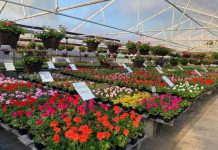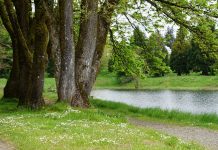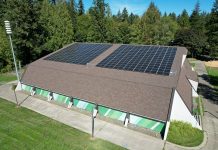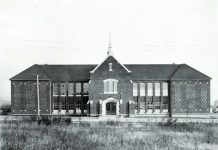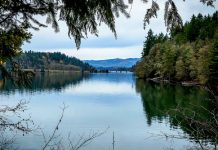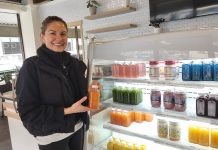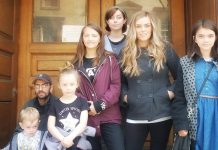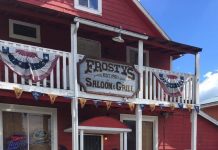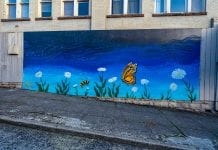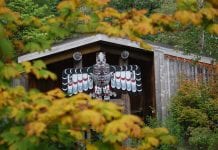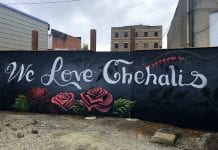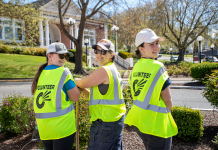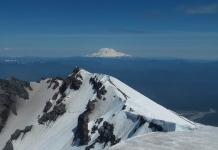This community events calendar is the place to find fun activities and things to do throughout Lewis County, including Centralia, Chehalis and beyond.
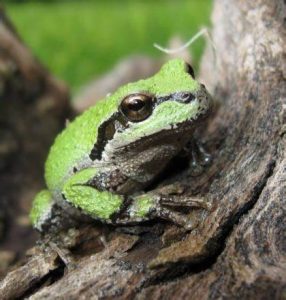
Native Amphibian Workshop with Lewis County Stream Team!
> Educational Workshop from 10:30AM-11:30AM at Chehalis Timberland Library (400 N Market Blvd)
> Wetland tour from 12:00-1:00PM at the City of Centralia ponds (Meet at North Gold Street & Ham Hill Rd in Centralia at the gravel parking lot)
Join WA Dept of Fish and Wildlife guest speakers Dr. Max Lambert, herpetologist and senior research scientist, and Julie Tyson, aquatic research biologist. Learn more about native amphibian species and habitat! After the talk, join us in the field to tour a local wetland. Learn how to identify amphibian egg masses and habitat requirements. Please bring rubber boots and hip waders if you have them. Please dress warm.
Supported by Lewis Conservation District, Office of Chehalis Basin, TransAlta Centralia Coal Transition Board, Washington Department of Fish and Wildlife
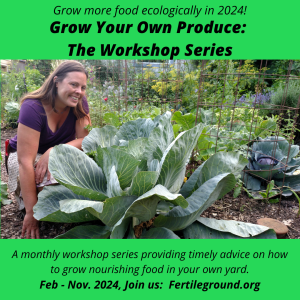
February 7th – November 6th 2024: 1st Wednesday of the month
$250 for all 10 classes, $130 for a 5 class series, or $30 per class
6 pm – 8 pm PST
Grow Your Own Produce is a 10 class monthly series taught by permaculture expert Marisha Auerbach. Each class features seasonally-relevant information about planning, growing, maintaining, and harvesting food from your own vegetable garden.
?
Each month, the class is designed to help you maximize your yields and efforts in the garden by providing an overview of key activities to engage in at the right time each month from February through November. We meet on the first Wednesday of each month through Zoom. Before the class meeting, participants will receive a collection of handouts supporting the key topics for the month with a garden checklist for the month ahead. We will discuss different subjects that are pertinent to the garden that month using slides and the month’s handouts as reference. There will be ample time each class session for questions. After each class, participants receive a video of the class and pdf of the slides.
?
Marisha Auerbach has spent many years observing and interacting in her garden and in the gardens of the greater Pacific Northwest bioregion. She has been growing most of her own produce year ‘round for over the past decade. To learn more about Marisha, please visit her bio page. This is the 11th year that Marisha will be offering the workshop series.
2024’s schedule of Classes:
Wednesday, February 7: Planning, Design, & Framework
Wednesday, March 6: Indoor Seedstarting, Early Season Plantings, & Perennial Vegetables
Wednesday, April 3: Cole Crops, Greens, & Soil Building
Wednesday, May 1: Warm Season Crops, Edible Flowers, & Attracting Pollinators
Wednesday, June 5: Maintenance & Harvest
Wednesday, July 3: Berries, Herbs, & Water Catchment
Wednesday, August 7: Seedsaving & the Winter Garden
Wednesday, September 4: Putting up the Harvest
Wednesday, October 9: Garlic, Cover Crops, & Compost
Wednesday, November 6: Nourishing Soups, Wildlife in the Garden, & Planning for the Coming Year
Come join us for a discussion about which seeds are best for saving and the methods for saving them, including drying, storing, and planting.
February 7th – November 6th 2024: 1st Wednesday of the month
$250 for all 10 classes, $130 for a 5 class series, or $30 per class
6 pm – 8 pm PST
Grow Your Own Produce is a 10 class monthly series taught by permaculture expert Marisha Auerbach. Each class features seasonally-relevant information about planning, growing, maintaining, and harvesting food from your own vegetable garden.
?
Each month, the class is designed to help you maximize your yields and efforts in the garden by providing an overview of key activities to engage in at the right time each month from February through November. We meet on the first Wednesday of each month through Zoom. Before the class meeting, participants will receive a collection of handouts supporting the key topics for the month with a garden checklist for the month ahead. We will discuss different subjects that are pertinent to the garden that month using slides and the month’s handouts as reference. There will be ample time each class session for questions. After each class, participants receive a video of the class and pdf of the slides.
?
Marisha Auerbach has spent many years observing and interacting in her garden and in the gardens of the greater Pacific Northwest bioregion. She has been growing most of her own produce year ‘round for over the past decade. To learn more about Marisha, please visit her bio page. This is the 11th year that Marisha will be offering the workshop series.
2024’s schedule of Classes:
Wednesday, February 7: Planning, Design, & Framework
Wednesday, March 6: Indoor Seedstarting, Early Season Plantings, & Perennial Vegetables
Wednesday, April 3: Cole Crops, Greens, & Soil Building
Wednesday, May 1: Warm Season Crops, Edible Flowers, & Attracting Pollinators
Wednesday, June 5: Maintenance & Harvest
Wednesday, July 3: Berries, Herbs, & Water Catchment
Wednesday, August 7: Seedsaving & the Winter Garden
Wednesday, September 4: Putting up the Harvest
Wednesday, October 9: Garlic, Cover Crops, & Compost
Wednesday, November 6: Nourishing Soups, Wildlife in the Garden, & Planning for the Coming Year
Come join us for a discussion about which seeds are best for saving and the methods for saving them, including drying, storing, and planting.
Learn about selection, care & hands on pruning of blueberries of the Pacific NW.

In 2021, 82 percent of American Jews said antisemitism had risen over the last five years, while only 44 percent of the general public believed that to be the case. How can we account for this striking difference?
Antisemitism is sometimes called “the oldest hatred,” and this talk will show how religious and racial prejudice shaped Jewish experience over millennia and came to unite diverse Jewish people around the world. Topics will include the origins of Jewish stereotypes, how antisemitism intersects with white nationalism, and the difference between critiques of the Israeli government and discrimination against Jews. Attendees will gain new knowledge and understanding about antisemitism along with strategies to address it.
Nancy Koppelman?(she/her) has been a professor of American studies and humanities at The Evergreen State College for 28 years, where she currently leads the Evergreen Jewish Studies Project. She holds an M.A. in history from the University of Washington and a Ph.D. in American studies from Emory University
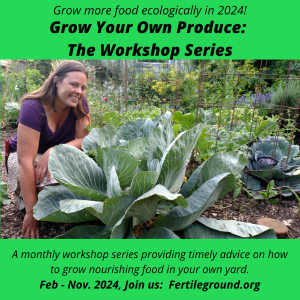
February 7th – November 6th 2024: 1st Wednesday of the month
$250 for all 10 classes, $130 for a 5-class series, or $30 per class
6 pm – 8 pm PST
Grow Your Own Produce is a 10-class monthly series taught by permaculture expert Marisha Auerbach. Each class features seasonally relevant information about planning, growing, maintaining, and harvesting food from your own vegetable garden.
Each month, the class is designed to help you maximize your yields and efforts in the garden by providing an overview of key activities to engage in at the right time each month from February through November. We meet on the first Wednesday of each month through Zoom. Before the class meeting, participants will receive a collection of handouts supporting the key topics for the month with a garden checklist for the month ahead. We will discuss different subjects that are pertinent to the garden that month using slides and the month’s handouts as references. There will be ample time each class session for questions. After each class, participants receive a video of the class and a pdf of the slides.
Marisha Auerbach has spent many years observing and interacting in her garden and in the gardens of the greater Pacific Northwest bioregion. She has been growing most of her own produce year ‘round for over the past decade. To learn more about Marisha, please visit her bio page. This is the 11th year that Marisha will be offering the workshop series.
2024’s Schedule of Classes:
Wednesday, February 7: Planning, Design, & Framework
Wednesday, March 6: Indoor Seed starting, Early Season Plantings, & Perennial Vegetables
Wednesday, April 3: Cole Crops, Greens, & Soil Building
Wednesday, May 1: Warm Season Crops, Edible Flowers, & Attracting Pollinators
Wednesday, June 5: Maintenance & Harvest
Wednesday, July 3: Berries, Herbs, & Water Catchment
Wednesday, August 7: Seed saving & the Winter Garden
Wednesday, September 4: Putting up the Harvest
Wednesday, October 9: Garlic, Cover Crops, & Compost
Wednesday, November 6: Nourishing Soups, Wildlife in the Garden, & Planning for the Coming Year
How to properly up-pot seedling plants and how to correctly handle and repot root bound plants.
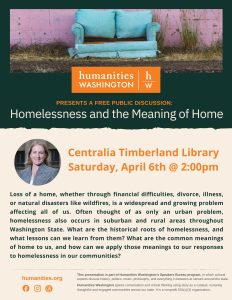
Loss of a home, whether through financial difficulties, divorce, illness, or natural disasters like wildfires, is a widespread and growing problem affecting all of us. Often thought of as only an urban problem, homelessness also occurs in suburban and rural areas throughout Washington State. What are the historical roots of homelessness, and what lessons can we learn from them? What are the common meanings of home to us, and how can we apply those meanings to our responses to homelessness in our communities?
In this talk, author and professor Josephine Ensign leads audiences through a values clarification exercise that includes individual writing time. Professor Ensign will share her research on the history of homelessness in her hometown of Seattle, along with discussion of what these stories can teach us about the contemporary crisis of homelessness throughout our state and country.
Josephine Ensign (she/her) is a professor at the University of Washington in Seattle. Her scholarship and practice as a nurse practitioner focus on trauma-informed care and health inequities for people marginalized by poverty and homelessness. She experienced homelessness herself as a young adult. Ensign is the author of several books including Skid Road: On the Frontier of Health and Homelessness in an American City, a 2022 finalist for the Washington State Book Award. Her latest book, Way Home: Ways Out of Homelessness, is forthcoming from Johns Hopkins University Press.
Ensign lives in Seattle.

